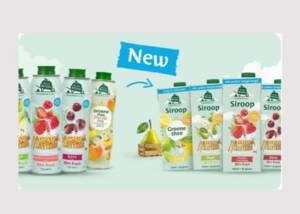Europe's brewers commit to transparency
News General news
Association supports EU code - Commission praises labeling initiative

Europe's brewers have voluntarily introduced ingredient and calorie labeling on their products in all EU states. European food law has so far stipulated that beverages containing alcohol are exempt from the labeling requirement. German breweries have always been a step ahead here: "Unlike other alcoholic beverages, the ingredients of every German beer have long been shown on the label. Since the launch of our initiative two years ago, more and more breweries are now also labeling the calorific value," says Holger Eichele, managing director of the German Brewers Association. The association sees this as "a contribution to better consumer information and more transparency."
In a survey commissioned by the Brewers Association, around 52 percent of German consumers said they would like to see calorie information on the label of all alcoholic beverages such as beer, wine or whiskey in the future. However, the survey also revealed that many consumers overestimate the calorific value of beer: A total of 42 percent of respondents rated the calorie content of a pilsner beer higher than it actually is, namely around 40 kcal per 100 ml. 31 percent did not know the answer. Only 19 percent were correct.
The initiative launched in 2019 by the German Brewers Association and the Association of Private Breweries Germany for voluntary calorie labeling is part of the European project "Proud to be Clear" - a campaign of the European umbrella organization "The Brewers of Europe." The declared aim of this campaign is to label all beers throughout Europe with the ingredients and calorific values by the end of 2022. According to the Brewers, Europe's brewers are on the finishing line - 93 percent of all beer bottles and cans in Europe already feature the ingredients, and over 86 percent the calorific value (calories/joule). In Germany, all beers have long since been labeled with ingredients, and more than 90 percent of the volume sold is already labeled with the calorific value.
Europe's brewers support EU code
This week, the umbrella organization "The Brewers of Europe" was also one of the first signatories of the EU Code of Conduct for Responsible Business and Marketing Practices in the Food Chain, which commits companies and associations to sustainable business practices that go beyond the legal requirements. This initiative was launched by the EU Commission with the aim of working with the food industry to achieve a sustainable change toward greater climate protection, health protection and transparency in the food industry. The new code is part of the EU's "Farm to Fork" strategy, with which Europe aims to modernize the agricultural and food sector from the field to the barn.
EU Health Commissioner Stella Kyriakides, speaking to the association, praised the initiative of brewers from the 29 national member associations of Brewers of Europe. "The industry has a key role to play in protecting the health of our citizens and empowering them to make healthy lifestyle choices," the commissioner said on the sidelines of the conversation. The Brewers of Europe video conference with Commission representatives came at a time when bars, cafes and restaurants across Europe were reopening after many months of lockdown. The restrictions triggered by the Corona pandemic hit the industry hard: according to the Brewers of Europe, bars and restaurants lost around 42 percent of beer sales in the crisis year 2020 alone, equivalent to over 5 billion liters of beer. A total of 800,000 jobs were and are threatened by this. According to Pierre-Olivier Bergeron, secretary general of the Brewers, it is remarkable that many breweries hit hard by the crisis have nevertheless not slackened in their efforts to promote initiatives such as greater sustainability and climate protection or better labeling of their products.










